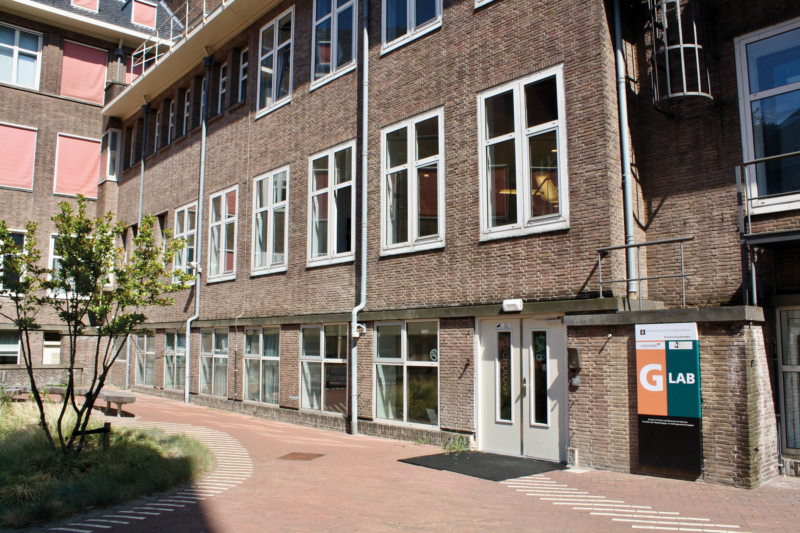

If you haven’t been living under a rock, you have noticed that quite a few things have changed recently. More or less abruptly, the Dutch government and therefore also all Dutch universities issued statements saying that all on-site teaching is suspended, and that everything – exams, tutorials, and so on – will be done online, or not done at all. As someone who is writing his thesis this year, I am required to have even one-on-one meetings with my supervisor online, rather than in person. While this is a rather new and daunting situation for most of us, it also makes me ponder on what the education of the future would look like. Isn’t it long overdue that universities take bold steps towards digitalisation, even if there was no pandemic around?
Take a look at your (normal) daily routine. You get up in the morning, and make your way to university, where you are mainly taught through lectures. You just sit there, while the lecturer is giving a monologue. No student-teacher interaction; almost no opportunities for participation. Is there anything you would be missing by watching pre-recorded lectures at home on your computer? You might now argue that it is easier to ask the lecturer a question, but this is something that only a few people do (besides the fact that it would not be possible for every one of 400+ students to ask a question). Most people just sit and listen. Actually, it seems like a huge waste of money: lecturers are being paid to hold the same lectures every year, often without adding anything new. Why not record the lectures once and put them online for the students? Why are lectures the primary method of teaching in the first place? They might be a good way of teaching, but are they also a good way of learning?
Psychologist Stephen Kosslyn (Kosslyn & Nelson, 2017) answers this question clearly with a ‘no’. Lectures, according to him, are outdated forms of teaching that make it easier for those who teach, but harder for those who learn. It is easy to give a lecture, as the teacher only needs to prepare a monologue without taking the students into account, but because of this, it is only a suboptimal way of learning. Learning, as Kosslyn reasons, requires full engagement by the student in a way that lectures simply cannot provide. Higher education should be about dynamic teacher-student interaction; students should actively discuss what they have learned and play as central a role in the process of learning as possible. Kosslyn also agrees that the current university system is extremely inefficient, and that many costs could be reduced through digitalisation. So what would this digitalized university look like? A couple of years ago, Kosslyn teamed up with a venture capitalist and founded his own university, which runs according to his principles. The Minerva Schools offer their education entirely online, solely through interactive tutorial classes, thereby both enhancing the learning experience of students as well as reducing unnecessary costs (e.g. classroom facilities). While digitalization certainly cannot solve every problem that current university systems face, the critical point is that digitalization enables educators and students to find the right balance between successful learning and its costs.
Does this mean that the future of higher education will indeed be entirely online? Maybe the possibility of online education seems to be a reasonable approach to education to you now, or maybe the experience that you have had the past weeks will lead you to dislike online classes even more. Yet, it might be unreasonable to harshly judge the merits of online education at this point, given that universities in general – the UvA included – have had extraordinarily little experience with online teaching so far. Personally, I think that today’s technology has great potential to make education cheaper, more effective, and more accessible than ever. I hope that recognizing this potential is one of the very few benefits that this crisis will have.
References
– Kosslyn, S. & Nelson, B. (2017). Building the Intentional University. MIT Press.

If you haven’t been living under a rock, you have noticed that quite a few things have changed recently. More or less abruptly, the Dutch government and therefore also all Dutch universities issued statements saying that all on-site teaching is suspended, and that everything – exams, tutorials, and so on – will be done online, or not done at all. As someone who is writing his thesis this year, I am required to have even one-on-one meetings with my supervisor online, rather than in person. While this is a rather new and daunting situation for most of us, it also makes me ponder on what the education of the future would look like. Isn’t it long overdue that universities take bold steps towards digitalisation, even if there was no pandemic around?
Take a look at your (normal) daily routine. You get up in the morning, and make your way to university, where you are mainly taught through lectures. You just sit there, while the lecturer is giving a monologue. No student-teacher interaction; almost no opportunities for participation. Is there anything you would be missing by watching pre-recorded lectures at home on your computer? You might now argue that it is easier to ask the lecturer a question, but this is something that only a few people do (besides the fact that it would not be possible for every one of 400+ students to ask a question). Most people just sit and listen. Actually, it seems like a huge waste of money: lecturers are being paid to hold the same lectures every year, often without adding anything new. Why not record the lectures once and put them online for the students? Why are lectures the primary method of teaching in the first place? They might be a good way of teaching, but are they also a good way of learning?
Psychologist Stephen Kosslyn (Kosslyn & Nelson, 2017) answers this question clearly with a ‘no’. Lectures, according to him, are outdated forms of teaching that make it easier for those who teach, but harder for those who learn. It is easy to give a lecture, as the teacher only needs to prepare a monologue without taking the students into account, but because of this, it is only a suboptimal way of learning. Learning, as Kosslyn reasons, requires full engagement by the student in a way that lectures simply cannot provide. Higher education should be about dynamic teacher-student interaction; students should actively discuss what they have learned and play as central a role in the process of learning as possible. Kosslyn also agrees that the current university system is extremely inefficient, and that many costs could be reduced through digitalisation. So what would this digitalized university look like? A couple of years ago, Kosslyn teamed up with a venture capitalist and founded his own university, which runs according to his principles. The Minerva Schools offer their education entirely online, solely through interactive tutorial classes, thereby both enhancing the learning experience of students as well as reducing unnecessary costs (e.g. classroom facilities). While digitalization certainly cannot solve every problem that current university systems face, the critical point is that digitalization enables educators and students to find the right balance between successful learning and its costs.
Does this mean that the future of higher education will indeed be entirely online? Maybe the possibility of online education seems to be a reasonable approach to education to you now, or maybe the experience that you have had the past weeks will lead you to dislike online classes even more. Yet, it might be unreasonable to harshly judge the merits of online education at this point, given that universities in general – the UvA included – have had extraordinarily little experience with online teaching so far. Personally, I think that today’s technology has great potential to make education cheaper, more effective, and more accessible than ever. I hope that recognizing this potential is one of the very few benefits that this crisis will have.


